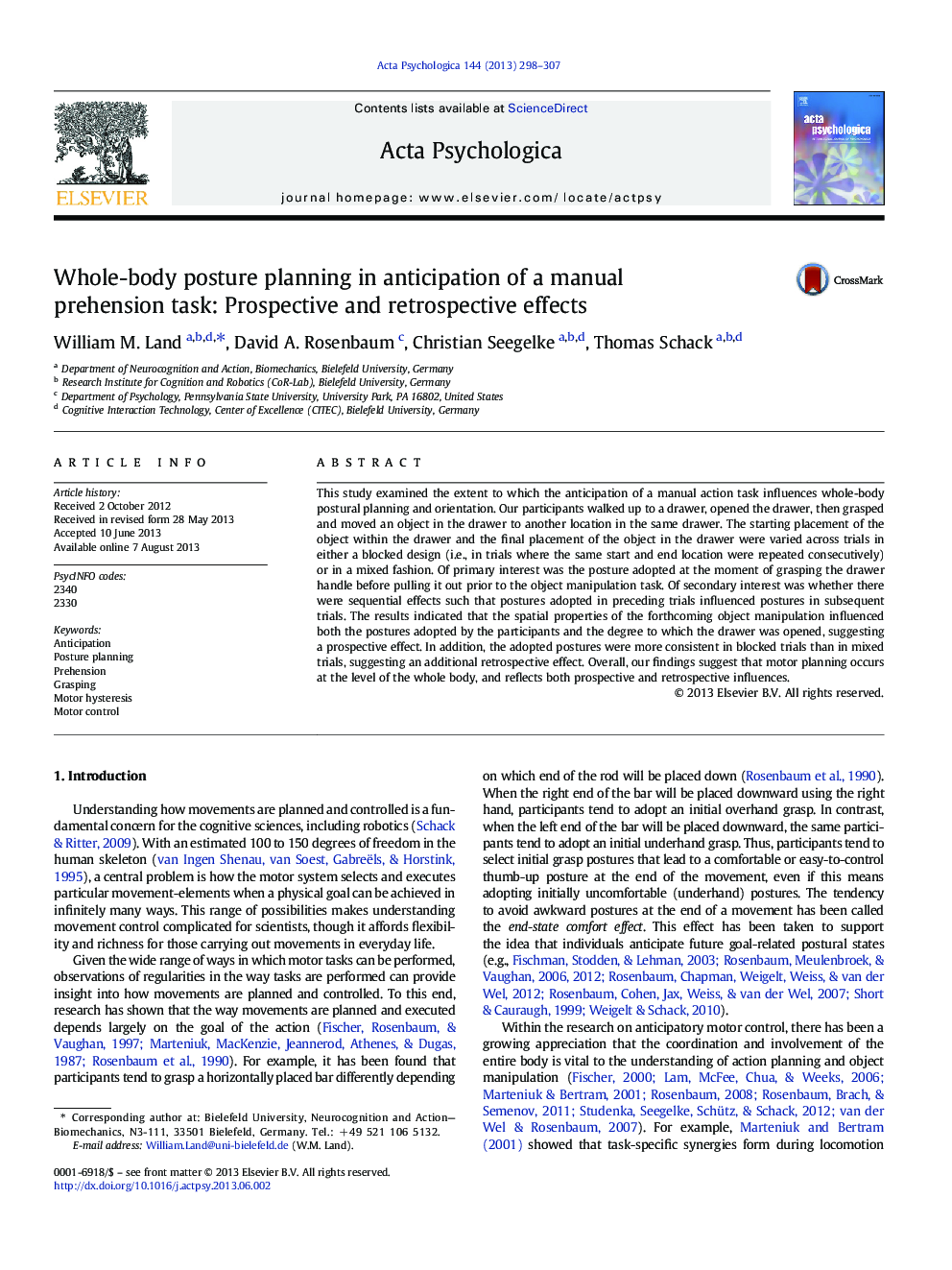| Article ID | Journal | Published Year | Pages | File Type |
|---|---|---|---|---|
| 10453776 | Acta Psychologica | 2013 | 10 Pages |
Abstract
This study examined the extent to which the anticipation of a manual action task influences whole-body postural planning and orientation. Our participants walked up to a drawer, opened the drawer, then grasped and moved an object in the drawer to another location in the same drawer. The starting placement of the object within the drawer and the final placement of the object in the drawer were varied across trials in either a blocked design (i.e., in trials where the same start and end location were repeated consecutively) or in a mixed fashion. Of primary interest was the posture adopted at the moment of grasping the drawer handle before pulling it out prior to the object manipulation task. Of secondary interest was whether there were sequential effects such that postures adopted in preceding trials influenced postures in subsequent trials. The results indicated that the spatial properties of the forthcoming object manipulation influenced both the postures adopted by the participants and the degree to which the drawer was opened, suggesting a prospective effect. In addition, the adopted postures were more consistent in blocked trials than in mixed trials, suggesting an additional retrospective effect. Overall, our findings suggest that motor planning occurs at the level of the whole body, and reflects both prospective and retrospective influences.
Related Topics
Life Sciences
Neuroscience
Cognitive Neuroscience
Authors
William M. Land, David A. Rosenbaum, Christian Seegelke, Thomas Schack,
